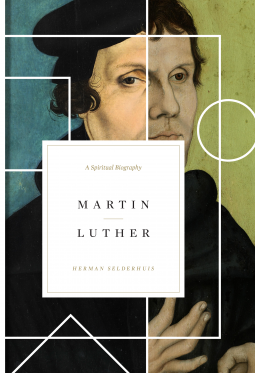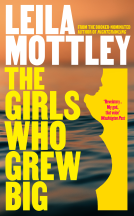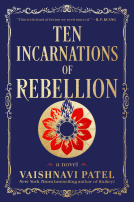
Martin Luther
A Spiritual Biography
by
This title was previously available on NetGalley and is now archived.
Send NetGalley books directly to your Kindle or Kindle app
1
To read on a Kindle or Kindle app, please add kindle@netgalley.com as an approved email address to receive files in your Amazon account. Click here for step-by-step instructions.
2
Also find your Kindle email address within your Amazon account, and enter it here.
Pub Date Oct 31 2017 | Archive Date Oct 05 2017
Description
This biography follows Martin Luther on his spiritual journey, revealing his dynamic personality, deep struggles, and durable faith—presenting him first and foremost as a man searching for God.
This biography follows Martin Luther on his spiritual journey, revealing his dynamic personality, deep struggles, and durable faith—presenting him first and foremost as a man searching for God.
A Note From the Publisher
PDF may not be compatible with all reading devices.
Advance Praise
“Herman Selderhuis gives a well-organized, source-based short account of Luther’s life, putting him into his context. Written by one of the most respected international scholars in Reformation history, this book may be fruitfully used as an introduction to Luther’s life.”
—Volker Leppin, theologian and professor of church history, Eberhard Karls University of Tübingen; president, Interdisciplinary Medieval Association
“With a keen eye for the details that make Luther come alive for twenty-first-century readers, and with an ear for those often-false rumors spread by other scholars about the man, Selderhuis guides us through the life of the Wittenberg professor, depicting his genius and his temperament within the context of his time and its challenges. This well-balanced journey at the reformer’s side provides readers with insights into the development of his thought and his path toward prominence and influence that shaped the last quarter century of his life. The often-slighted later years, in which his writings and personality created a sphere of influence equaled by few in any age, are here given due attention, with helpful explanations of the setting in which Luther’s reform movement matured.”
—Robert Kolb, international research emeritus professor, Institute for Mission Studies, Concordia Seminary; author, Martin Luther: Confessor of the Faith; coauthor, The Genius of Luther’s Theology
“The complexity of Luther is staggering, but Herman Selderhuis has given us a detailed portrait of the reformer that captures both his blemishes and the beauty of his faith in Christ. This book is a fascinating read about one of the most significant figures of history. Both students of Christian history and admirers of Reformation theology will find it helpful.”
—Joel Beeke, president, Puritan Reformed Theological Seminary
“There have been more books written about Martin Luther than any other figure in the last millennium of church history. With such a Luther-glutted market, what more could possibly be said about him? Well, this latest volume from the hand of the gifted Reformation scholar Herman Selderhuis does indeed give us a fresh perspective on the German reformer. With his own translations of Luther’s writings and his comprehensive knowledge of Luther’s world, both theological and social, this new biography is both deeply instructive about the things that mattered most to Luther and a delight to read. This is how biography should be written!”
—Michael A. G. Haykin, professor of church history and biblical spirituality, The Southern Baptist Theological Seminary
“Among the many new biographies of Martin Luther, this one stands out for its fresh engagement with Luther’s own assessment of his life and work. Well researched and engagingly presented.”
—Timothy George, founding dean, Beeson Divinity School; general editor, Reformation Commentary on Scripture
“What makes this Luther biography distinct is its explicit attention to Martin Luther’s spiritual journey as a sixteenth-century person haunted by his demons and driven by his passions, and the way it presents Luther’s own voice and reflection throughout, paired with a restrained but poignant analysis that invites the reader to dig deeper. Luther is introduced as a ‘problem’ in his church context with evolving roles in which he is shaped by his relationships. He is assessed as a ‘unique phenomenon’ on the one hand, while as a flesh-and-blood human being with a temperament, strong emotions, and tragic ailments on the other. Selderhuis’s clearly written and immediately engaging narrative, with wit, offers an abundance of detail and apparatus for the reader to understand one of the most fascinating personalities in Christian history and the complexities of his Reformation hermeneutics.”
—Kirsi Stjerna, First Lutheran, Los Angeles / Southwest Synod Professor of Lutheran History and Theology, Pacific Lutheran Theological Seminary; author, Women and the Reformation
“This richly illustrated and succinctly written book, based on anything but superficial knowledge, is very much a life of Luther for everyone. While announcing itself as a ‘spiritual biography,’ it actually presents Luther in body and soul in his day-to-day contexts. Selderhuis catches very well Luther as a reformer stumbling daily from one unconcealed existential crisis to another, often beset with spiritual, mental, religious, family, political, physical, and personality problems. Here we have the real Luther—potent prophet of God, astonishing theologian, prolific writer, and phenomenal communicator indeed, but also a flawed genius whose attributes included buffoonery, vulgarity, vindictiveness, and downright rudeness. While many have viewed the reformer as a Hercules of the faith and the thirteenth apostle, this book reminds us that Luther was also no saint and that he had no pretensions to be one.”
—W. Ian P. Hazlett, honorary professorial research fellow, University of Glasgow; editor in chief, Reformation and Renaissance Review; author, The Reformation in Britain and Ireland; coauthor, A Useable Past
“At this half-millennium anniversary of the birth of the Protestant faith, there is scarcely a better place to (re)discover Martin Luther than in this fresh biography by internationally recognized Reformation scholar Herman Selderhuis. Here is where to start your investigation of an amazing man whose remarkable courage, controversial ministry, and persuasive writings changed the world—for good and for ill. Don’t miss reading this fascinating, fun, and poignant foray into the spiritual life and tumultuous times of the one who, as Calvin described, ‘gave the Gospel back to us.’”
—Peter Lillback, president and professor of historical theology and church history, Westminster Theological Seminary
“Martin Luther: A Spiritual Biography offers a new and fascinating approach to Luther’s life. In this book, political and theological contexts are paid attention to, but priority is given to the story of Luther’s religious life, from childhood to old age. The account is based on an extensive use of primary sources—not least Luther’s letters and Table Talk—and the reformer’s own words are frequently quoted. At the same time, the interpretation of Luther’s texts is closely related to specific places and concrete situations in his life. In this way, the reader is brought closer to Luther’s person than what is often the case in other biographies.”
—Tarald Rasmussen, professor of general church history and research director, University of Oslo; editor, Teologisk Tidsskrift
“Herman Selderhuis is a fine scholar but also a churchman and a teacher. Thus, he writes with an enviable, conversational ease, which makes his teaching accessible to the nonspecialist audience. In this brief biography of Martin Luther, he brings the reformer alive, from his birth in humble circumstances to his death as the most (in)famous man in Europe. Those who have never encountered the narrative of Luther’s life before will find this an accessible and satisfying introduction that wears its learning lightly and points to the deep truths to which Luther’s life and thought testified.”
—Carl R. Trueman, Paul Woolley Chair of Church History and professor of church history, Westminster Theological Seminary; author, The Creedal Imperative and Luther on the Christian Life
Available Editions
| EDITION | Other Format |
| ISBN | 9781433556944 |
| PRICE | $30.00 (USD) |
Featured Reviews
 Reviewer 223873
Reviewer 223873
When I read biographies, I usually end up highlighting four or five, maybe half a dozen passages—some of these because of interesting ideas, and sometimes because I’m noting an unsupported judgment that weakens the overall point the writer is making.
It’s rare that I mark more than a dozen passages, but when I finished this biography of Martin Luther and went back to count up the highlights, I discovered more than twenty—and all of them marking sections woth rereading.
This is one of those rarities, a biography written by a scholar clearly thoroughly engaged with the time period as well as the subject, but written so lucidly that the book can be enjoyed by academics as well as the casual reader such as myself.
From his first appearance on the European scholastic stage in the early 1500s, Luther inspired a firestorm of writing about him and his ideas, a storm which has scarcely abated in the half-millennium since. Selderhuis steers with style and expertise through all these shoals—whether vilifying or hagiographic—as he presents the man through his own words as much as possible. Back in my own grad school days, I struggled through Luther’s words in Reformation-era German, and I recognized many of these passages.
Selderhuis places Luther within the context of his era, initially furnishing an understanding of life in Luther’s Germany and setting it against the religious issues of that time. Without passing judgment on the Roman Catholic Church of the period (and reminding the reader that Luther began his famous career determined to be a good monk, which he was for half his life), Selderhuis shows how Luther evolved from organizer to reformer.
I appreciated the care the author took in explaining the scholastic and theological pursuits of the day, such as setting up debates—which the famous 95 Theses was intended to be. Luther did not dramatically break with the Church when he proposed the theses. He wanted debate, clarification, and correction, and Selderhuis takes us through every step of Luther’s thought processes as he dealt with his initial religious fears, then read the Bible for himself, and then encountered Erasmus’s Greek translation, which was a thunderbolt to Luther.
Selderhuis then takes the reader step by step through the evolution of Luther’s thought as he strives to define Christian faith through Biblical text, and separate it from centuries of traditional and ritual accretion that, he posited, had nothing to do with Christ’s message. So we read about Luther making his way through one crisis to another, harrowed by spiritual, political, medical, and later, social and familial problems—his own personality, as he often recognized, getting in his way, especially later in life.
It’s clear from this record that Luther both relished life and yet was tormented by what we can now recognize as the symptoms of Meniere’s disease, and probably IBS as well—much exacerbated not only by the diet of those times, but the horrible “cures”—most of which involved some form of dung. When he called himself, as he frequently did, a bag of maggots, that might not have been very far from the truth.
Pain likely made Luther irascible, and drove him to see Satan and devils everywhere, including, in his later years, not only his enemies but old friends with whom he disagreed. Seiderhuis does not neglect the less savory side of Luther, such as his venomous writings about Turks and especially Jews. The latter is particularly unfortunate, as we know how those words were used by certain Germans in the last century, and yet Luther—presented with the horrific outcome—might have regretted his heat, for we also see evidence of his dislike of violence. He not only found the noble art of hunting dispiriting, as he felt sorrow for the innocent animals, but he dreaded violence being used to enforce religious laws and views, as inevitably happened—all this while living in expectation of being dragged to the stake by either pope or emperor.
Seiderhuis does not neglect the important figures in Luther’s life, and takes the time to give them their voices, not excluding Luther’s wife Kathe, who too frequently has been judged as a shrew because of complaining letters from the many Luther invited to his home. It was she who had to collect rents, in order to pay for a household that not only included the many Luther invited to reside with them, but seventeen children—her own six, and the eleven belonging to Luther’s siblings who died young. She organized his bachelor pad into a home, and established kitchen gardens and milk animals, as Luther--raised as a monk--never thought about money. He shared everything he had, but it fell to her to figure out how to do it.
Above all, this is a record of Luther’s spiritual evolution, and the beginning of the reformation church branches, as he and his contemporaries debated crucial concepts, and tried to find ways to translate those into everyday life, as well as in new forms of worship.
Political writers often find it convenient to overlook the spiritual side of Luther, claiming political and social expedience on every side (particularly in reference to the Peasants’ War, and other imperial maneuverings), but Seiderhuis demonstrates that this was an age of faith. As evidenced by the hundreds, even thousands, who traveled at great hardship just to lay eyes on Luther, or to hear him preach.
In spite of his many illnesses, Luther was an indefatigable worker, writing many books, and sometimes as much as forty letters in a day, but Seiderhuis shows—often with illustrations from the Cranachs, who lived nearby—how Luther took time in the evenings to be with his family, and how important music was to him. So, in the end, we see the man as well as the reformer and catalyst for change.
The bibliography at the end is every bit as formidable as one could expect in such a careful, scholarly work, and the prose is clear, humane, vivid, and engaging.
First sentence from the introduction: Luther was a problem. Certainly for the pope and the emperor, but often he was also a problem for his fellow reformers. Prone to outbursts of rage and coarse language, Luther was frequently stubborn and undiplomatic, even with allies.
First sentence from chapter one: God, the Devil, and death were everyday topics in the world into which Martin Luther was born. As a child, Luther learned that God was a Judge more righteous than merciful. The Devil was out to snatch your soul and turn women into witches. Death was not the end of life, Luther was taught, but instead it was the moment you appear before God and enter purgatory. With these dour lessons firmly in his head, is it any surprise that years later Luther would say that every mention of God was “as a clap of thunder in [his] heart”? The god that Martin Luther was told to believe in as a child was a god who signaled his righteousness chiefly through punishment.
Premise/plot: Herman Selderhuis has written a spiritual biography of Martin Luther. He balances writing about Martin Luther's life with letting Martin Luther tell his own story by sharing quotes from his books, letters, sermons, pamphlets, etc. Even if you've read half a dozen books on Martin Luther in the past, I'd invite you to read this newly published biography. Selderhuis' narrative style is compelling.
My thoughts: I loved this book. I have read a handful of books on Martin Luther. Perhaps I should amend that to read, I've struggled my way through a handful of books on Martin Luther. I've almost always found them dull, intimidating, repetitive, or simplistic. Perhaps that isn't fair. Perhaps a fairer description would be not quite ideal in terms of reader appeal or approachability.
I loved Selderhuis' biography because it was packed with information, with detail, but the presentation was such that everything fit together and created a big picture context. It included plenty of information--some of it new to me--in a fascinating narrative. Nothing was dumbed down or made to be concise. The book was not yet another basic outline of his life. There's a passage in Ezekiel that I think applies here.
Ezekiel 37:1-10 reads,
"The hand of the Lord was upon me, and he brought me out in the Spirit of the Lord and set me down in the middle of the valley; it was full of bones. And he led me around among them, and behold, there were very many on the surface of the valley, and behold, they were very dry. And he said to me, “Son of man, can these bones live?” And I answered, “O Lord God, you know.” Then he said to me, “Prophesy over these bones, and say to them, O dry bones, hear the word of the Lord. Thus says the Lord God to these bones: Behold, I will cause breath to enter you, and you shall live. And I will lay sinews upon you, and will cause flesh to come upon you, and cover you with skin, and put breath in you, and you shall live, and you shall know that I am the Lord.”So I prophesied as I was commanded. And as I prophesied, there was a sound, and behold, a rattling, and the bones came together, bone to its bone. And I looked, and behold, there were sinews on them, and flesh had come upon them, and skin had covered them. But there was no breath in them. Then he said to me, “Prophesy to the breath; prophesy, son of man, and say to the breath, Thus says the Lord God: Come from the four winds, O breath, and breathe on these slain, that they may live.” So I prophesied as he commanded me, and the breath came into them, and they lived and stood on their feet, an exceedingly great army."
Other biographers have given readers the dry bones of Martin Luther. But it is Selderhuis' biography that has given Martin Luther flesh and skin in my opinion.
I loved LEARNING. There were so many things I did NOT know about Luther even though I've read up on him.
For example, did you know that Martin Luther once promised his wife fifty guilders if she would read the Bible cover to cover during the period of early October to Easter? (She was SUPER busy being a mom and wife) Selderhuis writes, "Apparently, Käthe accepted this arrangement because on October 28, Luther mentioned to a friend, “She is taking this seriously, because she has already reached Deuteronomy.”
I was aware of Martin Luther's many stomach ailments. But I was NOT aware of the ringing in his ears. I found out I have something else in common with him!
OR did you know that on his deathbed Martin Luther kept quoting Psalm 31:6?
Favorite quote, "Every preacher must be so sure and should be so convinced that he has and that he preaches the Word of God that he would be willing to die for it, specifically because preaching concerns life."
 Lola J, Reviewer
Lola J, Reviewer
Despite the fact that religion itself has no real place in my own day to day life, theology has always been a subject that fascinates me. Why do people believe what they do? And how?
In university I did a bit of work on the reformation in England and again, the subject matter just grabbed me. Religion has shaped countries, it still does.
So I jumped at the opportunity to read this book on Martin Luther, a figurehead of the reformation across Europe. A reluctant figurehead at first, as I discovered reading this book, and not always a pleasant man.
The author takes the reader on a very matter-a-fact journey through Martin Luther’s life. He shows Luther as a committed monk, a passionate and stubborn reformer, a respected theologist, a loving father, but also touches on his difficult character and his flaws, his anti-semitism and his self-righteousness.
The biographical parts are interspersed with quotes and letters from Martin Luther himself. The author speculates little, preferring to lean on fact, and although it can sometimes make the text a little dry, it also gives it integrity. Sometimes it does jump around in time and it is not always clear why the author has chosen to write this biography that way.
Overall, having read this biography I feel I have gained an understanding of a turbulent time I did not quite have before. I am certainly a little wiser.
 James D, Reviewer
James D, Reviewer
I received a copy of this book via NetGalley for an honest review. Selderhuis offers here a very accessible biography of pastor, monk, and prophet Martin Luther. The author integrates Luther's theology throughout the book, explaining it in a way that is easy to understand for the layperson. He gives a fair assessment of Luther's irascible temperament which sometimes was his own worst enemy. He does not ignore Luther's failings, such as his involvement against the Peasant's Revolt. However, Luther's anti-Semitism is relegated to the final chapter. Indeed the final chapter is the weakest in the book - when the author appears to be jamming in final issues that could have been better integrated elsewhere. Despite, this issue, the biography is a commendable one which offers a balanced, comprehensive view of the greatest Reformer.
 JT T, Reviewer
JT T, Reviewer
I have to be honest, this was a great read. Wow, to help me understand an individual who had a lot to do with the reformation movement was a big task to take on and this book did a masterful job of capturing for us who Martin Luther really was. I love that this book went from his birth to his death, and did a in depth view of all the things that Martin experienced in his life. I really think Herman did it best by covering as much of Martin's life as possible, without getting bogged down with too much detail. He kept the biography moving which kept me engaged. I am guessing now after reading this, I have to pick up his book on John Calvin. Great work and very helpful to those of us who want to know more about church history. Not always easy to communicate church history in a way to keep one engaged. Herman did it.
 Reviewer 409364
Reviewer 409364
Biographies on Martin Luther are obviously not in short shrift lately (especially on the heels of Reformation 500). While Selderhuis has his quirks, most biographies of Luther are worth diving into in order to demonstrate how polarizing and indeed fascinating Luther is and was. A worthy and interesting addition to the library of Luther books.


















